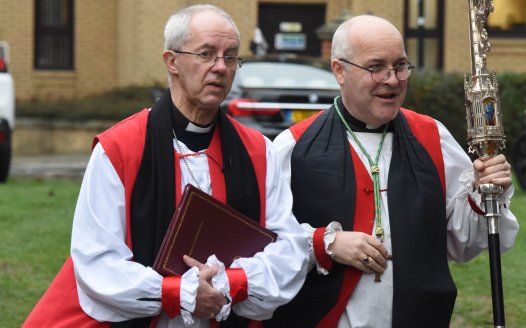Vatican tells new bishops they don’t “necessarily” need to report sex abuse of children
Posted: Thu, 11th Feb 2016
The National Secular Society has expressed its concern over guidelines for newly appointed bishops published by the Vatican which state that bishops do not always need to report clerical sex abuse to the authorities.
The guidance reportedly states that "According to the state of civil laws of each country where reporting is obligatory, it is not necessarily the duty of the bishop to report suspects to authorities, the police or state prosecutors in the moment when they are made aware of crimes or sinful deeds".
The NSS, which has campaigned for ten years, including at the United Nations, to expose clerical abuse and the rape and sexual abuse of minors, strongly criticised the guidance for flouting secular law and the recommendations of the United Nations.
Keith Porteous Wood, NSS executive director, commented: "It is unfortunately no surprise that these guidelines encourage bishops not to report suspected abuse, rather than obligating them to do so as the UN recommended specifically to the Vatican in 2014."
In 2014 the UN Committee on the Rights of the Child recommended to the Holy See that the Vatican "Establish clear rules, mechanisms and procedures for the mandatory reporting of all suspected cases of child sexual abuse and exploitation to law enforcement authorities."
Crucially, the UN CRC said that the Vatican must ensure that "all priests, religious personnel and individuals working under the authority of the Holy See are made aware of their reporting obligations and of the fact that, in case of conflict, these obligations prevail over Canon law provisions."
Mr Wood added: "The Vatican has ignored the vast majority of the UN's recommendations, even resorting to attacking the Committee that made them. The Vatican claims disingenuously that it has no obligation to even attempt to instruct the Church worldwide to report abuse to secular authorities, and to instruct that evidence, including that which is secreted under the auspices of the Vatican, be preserved and provided to those authorities as needed.
"Instead, the Pope appointed a powerless commission to protect minors. If he had really wanted to curtail the rampant worldwide child abuse and rape committed by clerics and bring justice to bear on perpetrators and their accomplices, he need only have followed the uncompromising recommendations of the UN Committee on the Rights of the Child.
"The Pope also appointed a Congregation for the Doctrine of the Faith tribunal to examine bishops' behaviour. The tribunal has clearly been established by the Church at the highest level to provide an escape route and create the illusion that bishops are being subjected to justice, but for canonical 'justice' the ultimate penalty – rarely imposed – is defrocking.
"These developments in the new papacy have been a triumph for public relations, but serve only to add to the abuse of victims by the institution to which minors were entrusted. Under the current papacy and to this day the vast majority of clerical abusers and their facilitators continue to escape justice or even exposure, and the victims continue to be denied compensation with the Church's full and considerable might."
In September 2015 a report drafted by the NSS into rape, sexual abuse and violence against minors by Catholic clerics was submitted to the UN Human Rights Council. Additionally that month an oral statement, prepared in part by the NSS, was delivered by Josephine Macintosh of the European Humanist Federation which strongly criticised the Holy See's failure to protect children.
Prior to that, the National Secular Society was a key witness before the UN Human Rights Council at the private examination of the Holy See over child abuse. The Committee later accused the Holy See of failing to acknowledge the "extent of the crimes committed." The Committee ultimately made searing criticisms of the Vatican's response to the "sexual abuse of tens of thousands of children worldwide."







